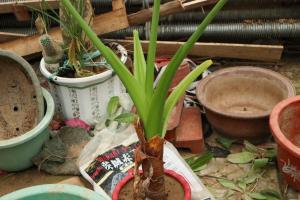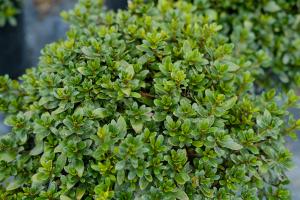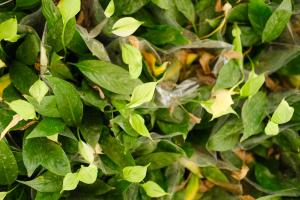Should I Put Epsom Salt On My Tomato Plants?
Tomatoes are one of the most popular vegetables (or fruit, depending on who you ask) to grow in home gardens. They're relatively easy to cultivate, but like any plant, there are a few tricks to getting the most out of your crop. One of those tricks is to use Epsom salt.
What Is Epsom Salt?
Epsom salt is a naturally occurring mineral compound of magnesium and sulfate. It's named after the English town of Epsom, where it was discovered in underground deposits. Epsom salt is often used as a home remedy for muscle aches, but it's also a common fertilizer for plants.
What Are The Benefits Of Epsom Salt For Tomato Plants?
Epsom salt is beneficial to tomato plants in two ways. First, it supplies essential nutrients. Magnesium is a vital nutrient for plants, but it's often lacking in the soil. By using Epsom salt, you can bolster your plants' magnesium levels, which can lead to healthier and more robust growth.
Secondly, Epsom salt can help prevent blossom-end rot. Blossom-end rot is a common problem for tomatoes that are deficient in calcium. Epsom salt doesn't contain calcium, but it can help the plant absorb it more effectively from the soil by adjusting the pH level. When a plant's pH level is too low or too high, its ability to take up certain nutrients, including calcium, can be compromised.
How Do I Apply Epsom Salt?
Epsom salt is easy to apply to tomato plants. Simply mix one tablespoon of Epsom salt into one gallon of water, and use the solution to water your plants. You can also sprinkle the salt directly onto the soil around the plant, but be sure to water it in afterwards. Repeat this process every two to four weeks throughout the growing season.
Are There Any Risks To Using Epsom Salt?
Although Epsom salt is generally safe for plants, it's essential to use it in moderation. Overuse of Epsom salt can lead to a build-up of magnesium in the soil, which can negatively impact the plant's ability to take up other nutrients. Additionally, while Epsom salt can help prevent blossom-end rot, it won't cure it once it's set in. If you're experiencing blossom-end rot, it's important to address the underlying issue (like inadequate calcium) rather than relying solely on Epsom salt.
Conclusion
In short, if you're looking for a natural and straightforward way to improve the health and yields of your tomato plants, Epsom salt is worth considering. Just be sure to use it in moderation, and don't rely on it as a cure-all for every problem your plants encounter. With a little care and attention, you can enjoy a bountiful tomato harvest in no time!

 how many times do yo...
how many times do yo... how many planted tre...
how many planted tre... how many pine trees ...
how many pine trees ... how many pecan trees...
how many pecan trees... how many plants comp...
how many plants comp... how many plants can ...
how many plants can ... how many plants and ...
how many plants and ... how many pepper plan...
how many pepper plan...

































